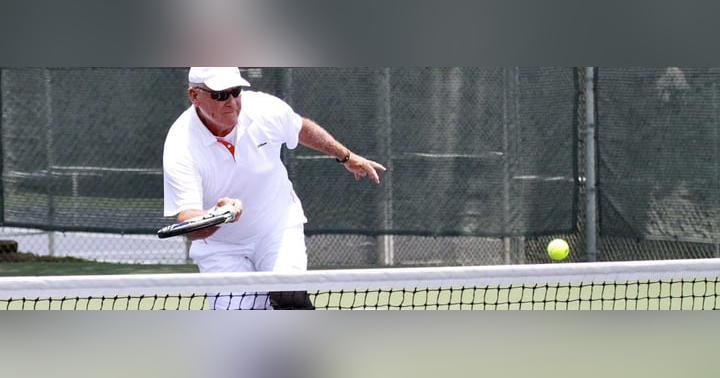Why tennis is a mental game

It is no secret that tennis is one of the most mental sports.
Whilst physical fitness and the ability to physically hit shots are crucial, the best tennis players are those that are the toughest in the mind and those who can channel their emotions to achieve success. The mental game is played at all levels. Whether you are enjoying your first competitive games or competing at the Pro level, you will know of the mental turmoil that tennis can create.
The success of books such as Timothy Gallwey’s ‘The Inner Game of Tennis’ demonstrates how, perhaps more than any other sport, athletes struggle with mental demons. Why is tennis such a mental challenge and how can you prepare yourself for it?
Focus
Focus and concentration are two of the keywords that are used when analyzing the mental side of a tennis players game. A player can’t improve their mental strength if they can’t stay focused and concentrate for the duration of a match. Developing a players focus requires a lot of self-discipline from the individual. A coach can do everything possible to help improve their focus but ultimately it is down to them to ensure they stay focused throughout the match. Once they have learned how to concentrate throughout a match, they will become more aware of different aspects of the game and be able to prioritize and adapt their game plan as necessary.
The importance of pre-match planning
Preparation and planning are key to giving you a mental edge when going into a match. Having a game plan is vital, knowing not only your own strengths and weaknesses but also your opponents helps to highlight ways you can gain an advantage over them. It is, however, just as important to have a backup plan that you can switch to in case your game plan isn’t quite working. If your Plan A isn’t working, it can be extremely demoralizing, resulting in a potential loss of focus. Therefore having the ability to switch your approach and try something different gives you the opportunity to stay one step ahead. It is important to remember that it’s likely your opponent will have also developed a game plan that works towards their strengths and aims to highlight your weaknesses. This is where mental strength becomes critical, as it’s more than likely the mentally stronger player will come out on top in these crucial stages of the match.
Improving decision making to outwit opponents
Tennis is a gladiatorial sport. Players are battling on the court on their own without the help and guidance of their coaches. Your decision making is therefore vital in ensuring success. Trying to play an overly aggressive shot or coming to the net prematurely are examples of poor decision making that could lead to dropping an easy point. However, having the ability to manipulate the match in your favor by making the right choices at the right time can be extremely rewarding. More often than not poor decision making will result in the loss of a point, which in turn can start to test the mental strength of a player, further emphasizing why decision making is a core element in improving a players mental strength.
Blocking out distractions and dealing with uncontrollable factors
As previously mentioned, to be a mentally strong athlete you need to know what to focus on throughout a match and be able to block out any distractions. Changes in weather can have a serious impact on the way a game plays out, especially if you are not prepared for these potential changes. Additionally, the impact of the crowd, or another match going on at the same time, can significantly impact a player’s ability if they aren’t able to block out these distractions. Many of these distractions are uncontrollable, so no matter how much planning you put into your game you cannot factor in these events. However, what you can plan for is your ability to work around them and alter your game as required.
Understanding how to deal with victory and defeat
Every match played provides a player with countless opportunities to learn and ultimately improve their overall game. Reflection is a key part of any sport and being able to learn from your previous matches is the best way to improve your game. Every match has to have a winner and a loser, however, despite the result, being able to learn from your experiences is the best way to improve the mental side of your game. This is especially true in the early stages of your competitive tennis life - you should focus on the process rather than the outcome and will often learn more about your game from defeat than an easy victory.











